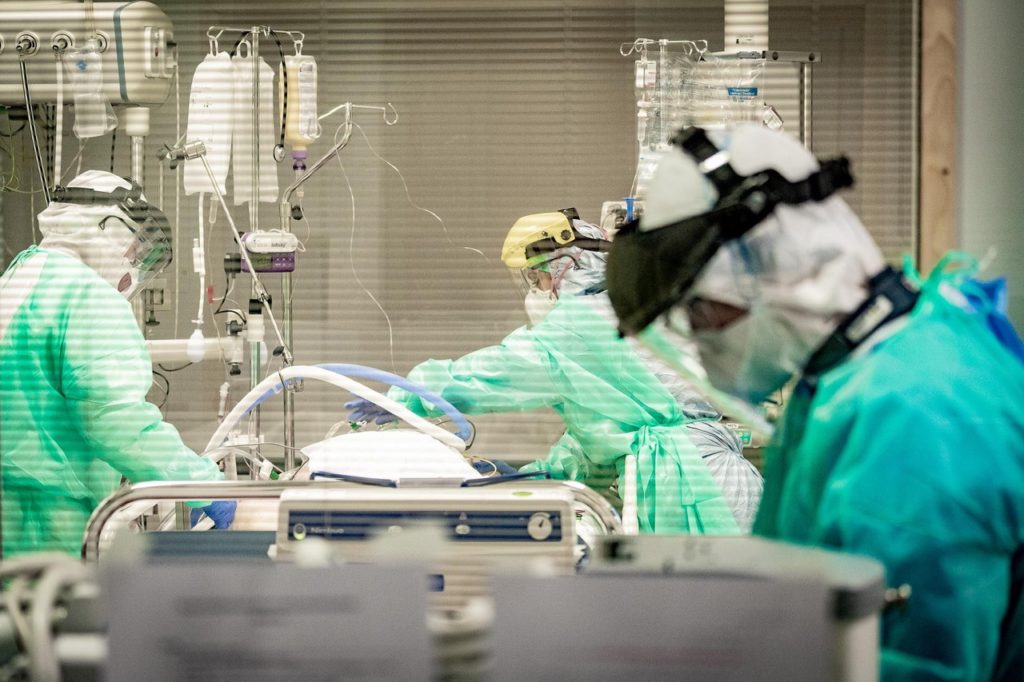The number of Covid-19 patients being treated in intensive care units in Belgium has dropped below 300 for the first time since the end of October last year.
Between 16 and 22 February, an average of 194.1 patients suffering from Covid-19 were admitted to hospitals each day – a decrease of 26% on the seven days previous, according to the figures published by the Sciensano Public Health Institute on Wednesday morning.
This number reflects how many people end up in hospital specifically because of the virus, not those who are admitted with another condition and then test positive for the coronavirus.
On Tuesday, 287 people were being treated in intensive care, 28 fewer than on Monday, while 127 (-9) patients were on a ventilator. In total, 2,823 people were in Belgian hospitals due to an infection (-176).
This number covers all patients who tested positive for Covid-19, including those who were first admitted with a different condition.
Fewer than 10,000 new infections
Between 13 and 19 February, an average of 9,273 new coronavirus infections were identified every day – a 38% decrease on the previous seven days. The Omicron variant currently accounts for just 70.2% of all cases in Belgium, down 13% since last week.
The average number of PCR tests taken per day in the same period declined by 19% to 43,860.1. The positivity rate now sits at 24.3%, meaning around a quarter of all tests have a positive result.
During the same week, an average of 38.4 Covid-19 patients died on a daily basis, down by 18% since last week. The total number of deaths in Belgium since the start of the pandemic amounts to 30,040.
It is important to note that the official death statistics include people who died of another cause of death, but who happened to be infected, meaning they are an overestimate of the deaths caused by the virus.
Reproduction rate, incidence, and total vaccinations
The reproduction rate (Rt) has slightly decreased to 0.82. This figure represents the average number of people that contract the virus from each infected person, and when it is below 1, it means that the epidemic is losing ground in Belgium.
The incidence (the number of new cases per 100,000 inhabitants) is continuing to decrease and now sits at 1,466 over the past 14 days.
As of Monday, more than 9 million people are fully vaccinated – 89% of Belgium's adult population and 79% of the total population.
Related News
- 'Can't rule it out': Belgium could switch to code yellow after carnival break
- Brussels switches from Covid-19 'crisis' to 'risk management'
Meanwhile, more than 6.93 million people have received a booster dose of a coronavirus vaccine, representing 74% of over-18s and 60% of the entire population. The majority of adults should have had the opportunity to get a booster dose by March 2022.
A recent study from the United Kingdom's Health and Security Agency (UKHSA) showed that booster vaccinations are estimated to have prevented 105,600 people from ending up in hospitals following a Covid-19 infection since mid-December.

